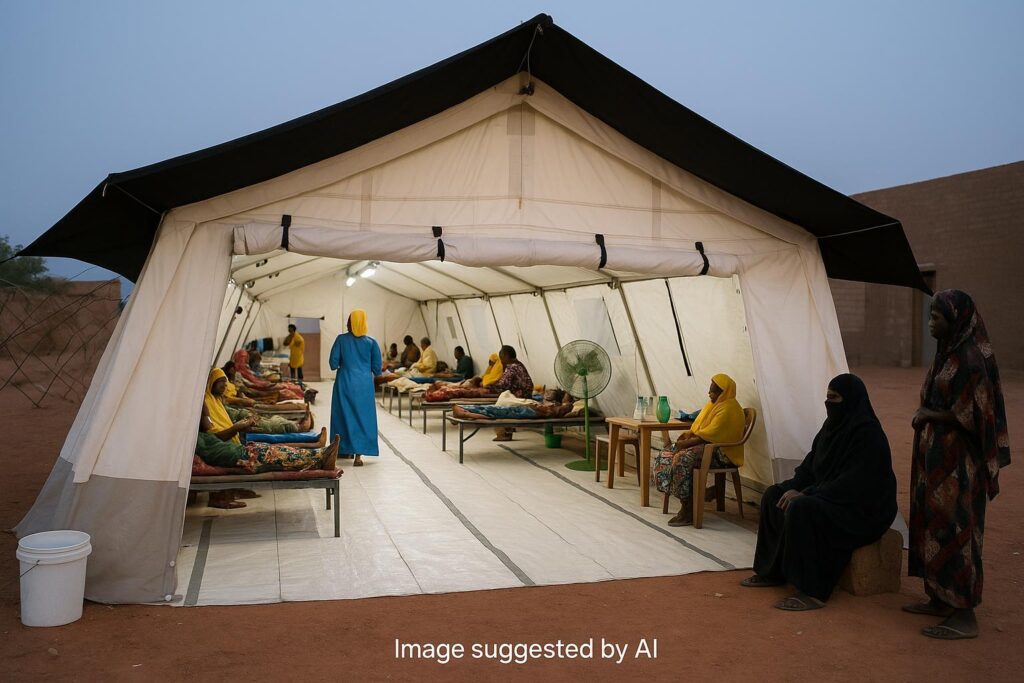Sudan Faces Deadliest Cholera Wave
Sudan is wrestling with its most severe cholera outbreak in years, tallying nearly 100,000 suspected infections and more than 2,400 deaths since August 2023, according to Médecins Sans Frontières data shared this week.
The surge arrives amid nationwide armed clashes that have uprooted millions and damaged water systems, creating fertile ground for water-borne disease even in towns that previously kept cholera at bay.
Conflict Compounds Water Shortages
Nowhere is the crisis sharper than in Tawila, North Darfur, where the United Nations estimates 380,000 displaced residents survive on roughly three litres of water daily, less than half the emergency minimum of 7.5 litres.
Limited supply forces families to drink from untreated wells; one camp resident recalled that a corpse found in a well was removed, yet desperate neighbours resumed drawing water two days later, a scenario health workers call ‘a perfect recipe for infection’.
Darfur Hospitals Overwhelmed
MSF and the Health Ministry expanded Tawila Hospital’s cholera ward from 130 to 400 improvised beds in early August, lining floors with extra mattresses as daily admissions topped 100.
Similar scenes play out in Golo, Zalingei and Nyala, where seasonal downpours have flooded latrines, contaminated groundwater and pushed already malnourished children into wards struggling to secure intravenous fluids and water-purification tablets.
Neighbouring Nations on Alert
Population movements toward Chad and South Sudan have carried suspected cases over porous borders, prompting epidemiologists in N’Djamena and Juba to activate surveillance systems and pre-position oral rehydration salts.
Blue Nile state, a traditional migratory corridor, tripled bed capacity in Damazin Hospital to 250 last month to manage arrivals, yet staff warn that vaccines are scarce and procurement timelines remain uncertain.
Race for Vaccines and Funding
MSF head of mission Tuna Turkmen urges a ‘fast-track outbreak coordination mechanism’ able to synchronize health care, water engineering and vaccination drives, arguing that ‘every day of delay costs lives and risks exporting the epidemic further’.
Donor agencies are examining requests; however, logisticians note that flooded roads, fuel shortages and security checkpoints could complicate the last-mile delivery of oral vaccines once funding is approved.


